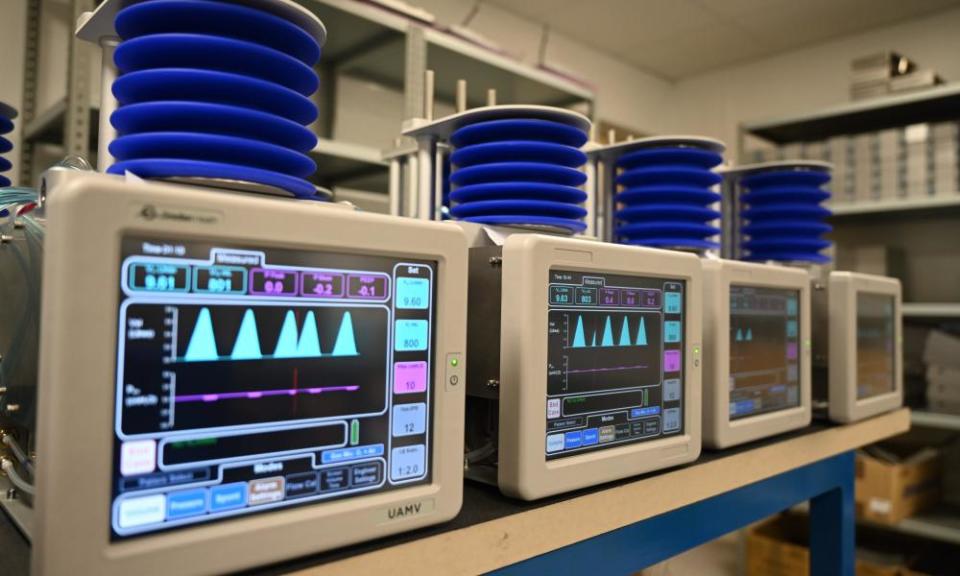Ventilator Challenge UK to start production in Covid-19 fight

A group of British manufacturers will begin producing medical ventilators for the NHS this week, under the twin codenames Project Oyster and Project Penguin, after the government ordered 10,000 of the devices to treat coronavirus patients.
Ventilator Challenge UK, a consortium of 14 firms including Airbus and Rolls-Royce, is expected to say that it has secured a formal order for two types of machine.
The government has 8,175 ventilators but has turned to British industry to help produce 30,000 in a matter of weeks, to combat an expected surge in new cases.
The engineer Dyson became the first to reveal it had signed a formal contract last week, when it announced an order for 10,000 of its CoVent prototype, which was designed in about a fortnight.
While the CoVent is yet to secure final regulatory approval – and may not reach production for weeks – Ventilator Challenge UK’s plans, set to be unveiled on Monday, are more advanced because they use two existing designs.
One model, understood to be government clinicians’ first choice, goes by the codename Project Oyster and involves slight tweaks to an existing design by a little-known Oxfordshire firm called Penlon.
Production is scheduled to begin this week, with approval from the government’s Medical and Healthcare products Regulatory Agency (MHRA) likely to prove straightforward.
A parallel effort by the same consortium, nicknamed Project Penguin, will involve scaling up production of a model made by medical equipment firm Smiths Medical at its factory in Luton.
Both projects have progressed under the oversight of the MHRA, to ensure the devices meet specifications laid down by clinicians.
The Ventilator Challenge UK consortium has a formal order for 10,000, matching the number that Dyson will provide if it secures regulatory approval for its CoVent prototype.
But it expects to deliver many thousands more if required, harnessing the combined manufacturing muscle of firms including Airbus, Rolls-Royce, BAE Systems, Ford, McLaren, GKN, Meggitt, Renishaw, Thales, Siemens and Ultra Electronics.
As well as lending factory floor space and logistical know-how, the companies have redeployed some of their most skilled engineers from key company projects to work on the ventilator effort.
The government has been considering at least 13 separate proposals from companies offering to plug an expected shortfall of the medical devices. No 10 said on Friday that it had narrowed the options down to seven.
Related: How ventilators work and why they are so important in saving people with coronavirus
The shortlist includes companies proposing to design and build machines from scratch, such as the partnership between Dyson and Cambridge-based The Technology Partnership.
Defence company Babcock is also building its own machine, working with an unnamed firm specialising in medical equipment.
On Friday evening, a consortium of seven Formula One teams including Aston Martin, Mercedes-AMG and Renault said they were working on multiple ventilator projects, under the banner Project Pitlane.
Companies that already make ventilators are also scaling up production. Breas UK, the British arm of a Swedish company, has tripled capacity and moved to a seven-day working week to increase production at its Stratford-upon-Avon site.
Crawley-based Inspiration Healthcare signed a £4m contract with the government to import devices from Israel and the US, although the order is understood to be for fewer than 500, likely to help bridge any gaps until new machines become available.
Ventilator Challenge UK has made the fastest progress and expects to begin production this week.
The arrival of the first batch could ease pressure on Boris Johnson, who tested positive for Covid-19 last week, after it emerged that the government missed an opportunity to take part in four EU ventilator procurement schemes, because of a “communications problem”.

